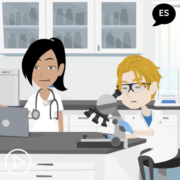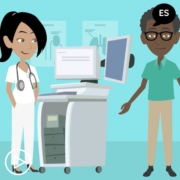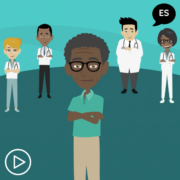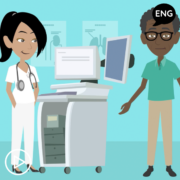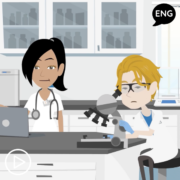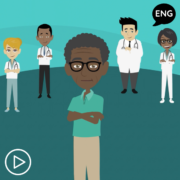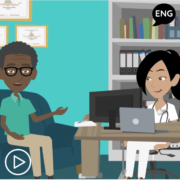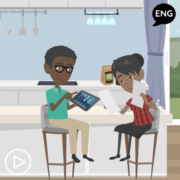Cancer Patient Profile: Linda Ryan
As a survivor of thyroid cancer, adenocarcinoma in situ of the cervix, and seven cancer recurrences, our PEN Gynecological Cancer Empowerment Lead Linda Ryan has learned a lot about cancer treatment and about life. She’s discovered the value of self-education, clinical trials, and friendships among many other things.
Linda’s first cancer experience occurred in 2002 with her thyroid cancer diagnosis. She received successful treatment and then two years later, as a result of a routine pap exam, she was diagnosed with stage 0 adenocarcinoma in situ of the cervix. Linda had a hysterectomy and no other treatment. And then seven years later, she found a lump on her neck that her doctors diagnosed as thyroid cancer recurrence. She had a radical neck dissection scheduled but found some lymph nodes in her groin area ahead of her surgery date. The sense of urgency for treatment increased considerably after the physician assistant knew Linda didn’t have thyroid cancer.
Linda learned that the standard of care option had a 15 percent response rate for her diagnosis, and the clinical trial was seeing a 31 percent response rate. She chose the clinical trial since it increased her chances by 16 percent. She traveled from Florida to Houston for treatment, and she did that for eight rounds every three weeks and then had no evidence of disease.
Clinical trial participation wasn’t something that Linda would have known to ask about initially, but she’s participated in a few trials. Patients can find all clinical trials on clinicaltrials.gov. “It’s important for patients to ask their doctors about trials and to do research on trials, knowing that they may not be eligible for certain ones if they don’t have certain cancer mutations or other treatment factors. Trials are available to patients in community settings and not just teaching institutions. I feel like I’m using them and getting the benefit of kind of cutting-edge medicine that isn’t available. So I think it’s important for people to seek out trials and educate themselves if there is something available for them.”
One key piece of advice from Linda is don’t give the cancer any more power than it deserves. “So I think it’s important to always remember you’re in charge, and you’re more powerful than the cancer. The words you use to talk about your cancer are very important. So knowing that when I exercise, I feel stronger than the cancer, even if I’m not lifting weights, but I’m moving.” She also recommends using mental exercises or spiritual practice as a way to keep your personal power during your cancer journey and to keep excessive anxiety at bay.
At the beginning of her cancer journey, Linda asked her doctor if she could keep running. Her doctor advised her to keep moving as much as she could. A group of Linda’s friends decided to host a 5K in her honor. “The goal was just to get our community moving and to hear that message of the importance of exercise. And it gave me a lot of mental strength.”
Reflecting back on the initial 5K event, Linda and her friends set out with specific goals for the event. They wanted the community to hear their message and wanted 300 people to participate in the first race. They were simply overwhelmed with joy when 900 people registered. They only needed 300 people to register to cover the expenses. The large event turnout meant that they had plenty of money left to donate.
And we had a small amount of money at that time, but we thought, “Well, we can do something good with this money.” And so we created a 501(c)(3) charity, and it became an annual event and an event for our small town in Florida to land, and Central Florida really embraced it. Fast forward to 2020, right before the pandemic we had 6,000 participants. It was just us five women running it. We all had different talents and decided it was time for someone else to take it over.”
Up until the time that the new organization took over in 2023, Linda’s efforts with her friends gave a little over $2 million. “So many good things came out of it, we’ve touched so many lives of people living with a cancer diagnosis and going through that process. But in addition to what the beneficiary money went to, the event united our community.”
While Linda was enduring her cancer journey, her whole town was looped in on what was happening with her. “When I would have a recurrence, I’d be in the grocery store in tears, because someone would know it was just like everyone knew. And so lightning in a bottle was such a great way to describe it. And then the other thing is because there aren’t a lot of recurrent cervical cancer survivors, especially six, seven-time survivors, I’ve been able to, hopefully, be a voice for other women.”
Linda has formed an educated opinion about cancer information. “Having more information can help all of us patients make better decisions and more informed decisions and talk to the doctors about things that they weren’t necessarily thinking would be specific to you. But getting more information can be a double-edged sword. Sometimes the more information we have, we can fall down rabbit holes and our cancer might not be this exact mutation, and we might read something on the Internet that isn’t necessarily relevant for our own situation. Make sure to talk with your doctor about information that you find.”
As for patients navigating their cancer journeys, Linda feels it’s important for patients to be empowered and to handle their cancer journey how they want to go through it. “Some patients may want someone else directing everything, but that’s their choice. Some people only tell their spouse. I think caregivers need to respect what the patient wants. That doesn’t mean the patient doesn’t need a reminder from time to time that they need to get up and put a smile on once in a while. I wouldn’t want to be the caregiver. It’s so hard for them, since they can fix the cancer.”
Last November, Linda had a scan that showed no evidence of disease, but she remained on pembrolizumab (Keytruda) as a precaution. “I receive it every three weeks through my port, but it’s super easy. I don’t have side effects. It’s 30 minutes. It’s not life-changing at all. So I hope to be on it for a really long long time, and I get scans every three months. I feel great.”
Though she never could have imagined enduring two types of cancer and seven cancer recurrences, Linda remains grateful for the good things that have come from her journey. “My prayer the last two years was, ‘Please let me live and use me as however I need to be used to help other people.’”

